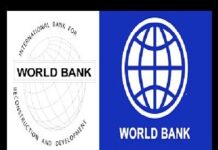
May 12, 2021
As the country lies in a health crisis that is proving to be deadlier than expected, the economic indicators are on the red and raise the specter of a fatal bankruptcy.
The economist and former Minister of Finance, Hakim Ben Hammouda spoke at length about it during a recent intervention in the media and to believe this eminent expert, Tunisia is inevitably heading towards the same fate that Lebanon is currently experiencing, which necessitates a real dialogue to be established to agree on how to take courageous and strong decisions to truly master these balances and limit this drift in internal and external debt.
As a man aware of the danger that threatens the country, Ben Hammouda calls for opting for more pragmatic solutions and avoiding pretense prepared by institutions that do not take reality into consideration, stating that “the strategy of targeting is dangerous and can lead to very strong social tensions.”

Absence of Consultation!
What the Tunisian government is doing today, however, does not seem to go in the same direction. To go begging from the IMF, the Tunisian delegation, which secretly prepared this campaign, has just unveiled its program and we can say that Mr. Ali Kooli, the Minister of Economy and Finance and his companions have done everything to put the country in the mouth of the wolf.
In the absence of consultation with the competences able to contribute to this delicate work and dialogue with all the components of civil society, including mainly the UGTT and the UTICA, These talks with the IMF seem to soon be the death knell for the Tunisian economy and especially for the social stability of the country.
And as this renowned economist pointed out, what this government has lacked, given the reaction of the unions and in particular the UGTT, is consultation. The weight and challenges associated with the economic crisis are so great that they exceed the capacity of such a weak government. The seriousness of the epidemiological, economic and financial situation cannot be settled by the goodwill of the government, it can only be settled in the context of a national debate, a national dialogue, proposed by the UGTT and which truly takes together strong decisions on many things including the wage bill, compensation, public enterprises. “We are facing an unprecedented crisis, one that calls for radical, innovative, important and major solutions that a single government, from my perspective, cannot take.”
Funny Populist Confinement
And this obstinacy to do everything without prior consultation has also affected the management of the health crisis. The Meshishi government, in a purely populist spirit, has just decreed a “paid leave” of 10 days for its civil servants. One can understand the closing of cafés, mosques and places of recreation, reducing travel between regions, but going so far as to close businesses and reduce the private sector to forced unemployment is incomprehensible and even economically suicidal. And as we decided to grant three days for the implementation of this bizarre confinement, the Tunisians rushed on the roads, the train stations, buses, supermarkets, which made last Saturday a day of crowdedness and traffic jams. And we will wait with all the fears for what will result in a fortnight in the statistics relating to the number of infected people and deaths.
Once again, the government has chosen to go it alone and decide without consulting with the parties involved such as UGTT and UTICA. The result has not been long awaited with entire regions across the country publicly announcing civil disobedience, inflicting a slap in the face of the State, if there is one.
As we can see, the Meshishi government does not seem to learn from its repetitive mistakes. And if he’s trying to pin everything on the Covid-19 Scientific Committee, the people aren’t as candid as that to think that it was this committee that decided to open the supermarkets during the lockdown, just to satisfy the mafias and the lobbies that impose their law on the general interest of the country.










